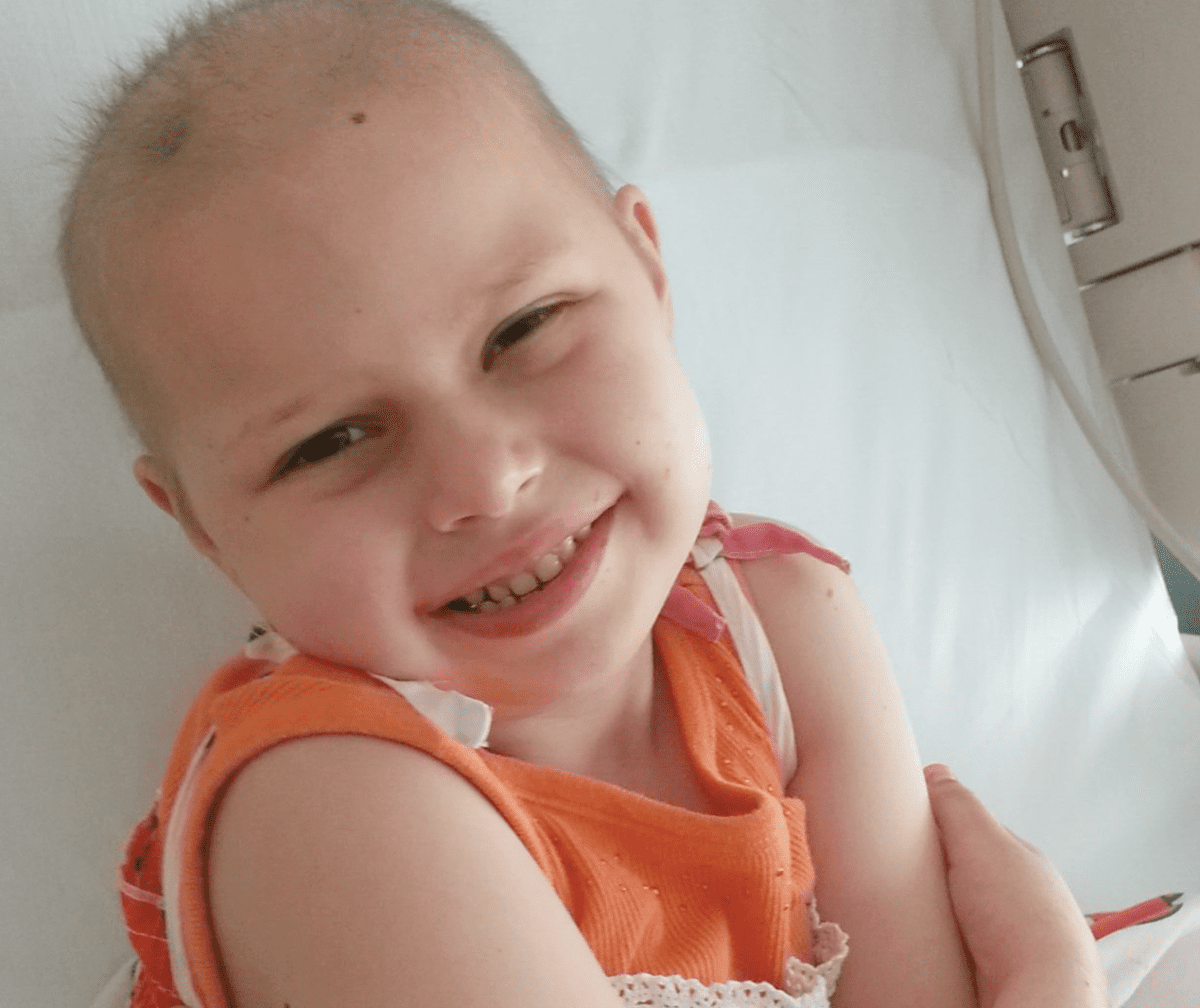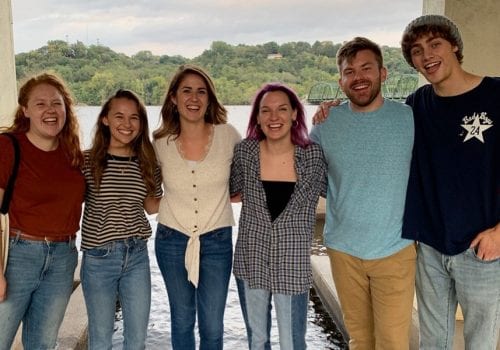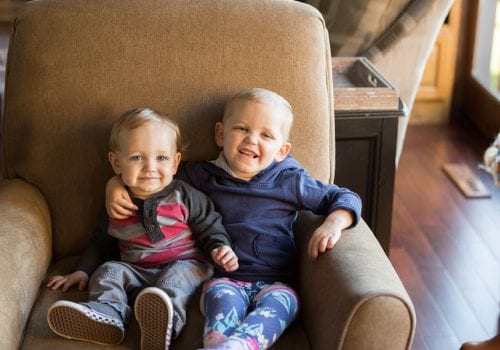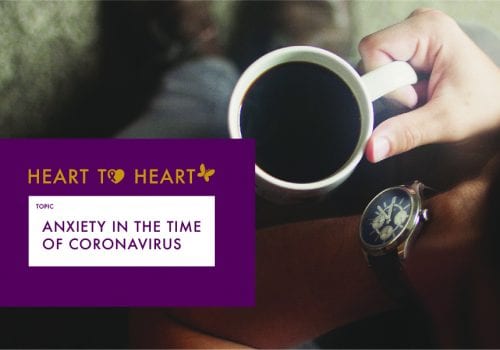Eight-year-old Nevaeh wears a gold cape in the grocery store. Her hair up in a pony-tail, she’s ready to get to work bagging groceries to fund brain cancer research through her fundraiser, Superkids Never Quit.
Though Nevaeh has always had a tender, compassionate heart, her medulloblastoma diagnosis gave her focus: to defeat the disease so other kids don’t have to go through it.
“Caring for people is 100 percent of who she is. She never wanted to see us sad when she was in treatment. You couldn’t cry in front of her,” said Tessa, Nevaeh’s mom. “She sees the good in things.”
At age 4, doctors discovered a tumor in Nevaeh’s brain after she had consistent, painful headaches and vomiting. “We were in the ER — I can picture the room still. Just talking about it gives me a pit in my stomach,” said Tessa. “You see the doctors walking outside, and you think they know something.”
After finding the brain tumor, doctors made a hole in Nevaeh’s skull to drain excess fluid from her brain and diagnosed the tumor as medulloblastoma. “She never questioned why she was put through this. She’d pray, and she wasn’t angry,” said Tessa.
Nevaeh then endured chemotherapy and, shortly thereafter, proton therapy. Proton therapy is a radiation treatment that uses protons rather than x-rays to treat cancer — and she received it almost 1,500 miles away from home in Jacksonville, Florida.
Finishing up treatment and returning to Minnesota, it seemed the therapy had worked. But routine scans revealed 10 more tumors in her spine and brain stem.
The risks were high for the next treatment including radiation sessions that were close together. This could cause headaches, seizures and even another brain cancer. Nevaeh responded remarkably well to the radiation and the additional six rounds of chemotherapy to kill any floating cancer cells.
Today she wears a brace, has cataracts in both eyes, needs growth hormone therapy as she has no thyroid and has hearing aids from hearing loss.
“Sometimes, people think you’re done with cancer once treatment is done, and it’s like if you only knew,” said Tessa. “I just want her to be able to do what she loves to do because there’s a lot she can’t do. I want her to know that if she has a dream and believes in something, she can follow that dream.”




